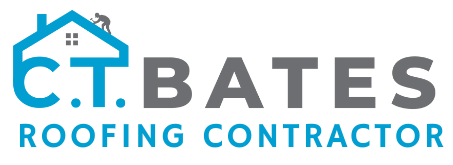Are all Georgia roofing contractors REALLY licensed?
Get The Facts:
Many roofers are in fact “Licensed & Insured” but what does that really mean? How exactly are they licensed? What insurance do they carry? If they simply have a driver's license and auto insurance they could say they are licensed and insured. Although that’s rarely the case, what many roofers carry as their “license and insurance” is just as ineffective and illegal.
What's the norm for Licenses?
If you ask to see a copy of a roofers license, the vast majority will present you with their “business” license. It may sound great, but that “license” probably isn’t what you think. If you have ever obtained a business license before, it is as simple as walking into your local city hall to fill out a short application and to pay a fee. Certainly not the technical type of construction license many homeowners assume! Acquiring a state license, however, includes a much more comprehensive understanding of roofing systems, how they operate, and how they're to be PROPERLY installed.
What the law says?
To paraphrase Georgia Code O.C.G.A. § 43-41-2, a residential contractor is any individual or business entity who offers to perform, performs, or submits a bid to perform construction services on a residential property as an independent business, when the project value/costs exceed $2,500.
This means that any contractor performing work on residential homes where the overall contract amount exceeds $2500 must be State Licensed. 99.9% of roofs will cost more than that. This means that any roofing contractor that cannot present an official state license is operating illegally.
https://sos.ga.gov/page/residential-and-general-contractors-frequently-asked-questions
How does a Contractor's Insurance protect me?
All roofing contractors should have valid, and verifiable liability insurance as well as workman’s compensation insurance that will protect you, the homeowner or business owner, if an accident happens at your home or business.
Why Your Roofer Should Have Liability Insurance:
If an accident happens and a roofer makes a mistake while putting on a new roof or making a repair to your roof, their professional liability insurance coverage will protect you from having to pay for their mistake.
For instance, if a roofer accidentally damages your house or property, and they have proper insurance, the cost of any damage would be covered by their liability insurance. If the roofing contractor did not have liability insurance, you might find yourself facing a bill to replace those items. Thankfully, most roofers do have this kind of insurance. However, it’s the next type of insurance that we find, rather alarmingly, many of our competitors don't carry.
Why Your Roofer Should Have Workers Compensation Insurance:
Roofs are inherently dangerous, and accidents do happen. That's why if something happens you want to make sure you're not held financially responsible.
For instance, if the roofing contractor has a worker who falls from your roof, or has any other type of accident while on your property, the injured worker, or their family, could try to hold you responsible for the injury since it happened on your property. As long as the roofing contractor has valid worker’s compensation insurance you, as the homeowner, are protected by that coverage.
If the roofing contractor did not have worker’s compensation insurance, you could be sued and subject to pay doctor’s bills, emergency room visits, and even funeral costs if a death should occur. Needless to say, making sure that your roofer has the right type of insurance while performing any work on your home is critical.
At C. T. Bates Roofing, we know that your roof system is the most important protection for your home, and we think it’s a very big deal that much of our competition chooses to install roofs with no type of official license or the proper insurance. You want to be sure that your contractor is qualified for the work that they are doing. Our State License and our Liability & Workers Compensation Insurance go hand in hand to protect you, the homeowner, from fraudulent activities, inadequate work, and illegal business practices.
